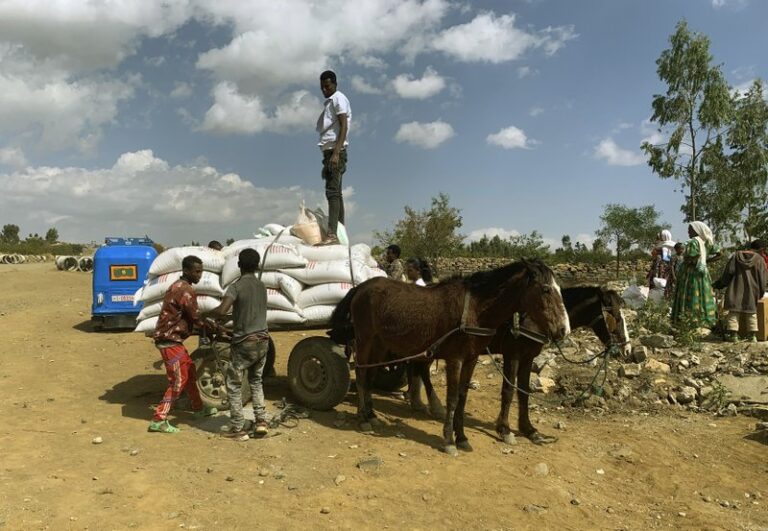
(AP) — Ethiopia’s government has privately told Biden administration staffers its embattled Tigray region has “returned to normalcy,” but new witness accounts describe terrified Tigray residents hiding in bullet-marked homes and a vast rural area where effects of the fighting and food shortages are yet unknown.
The conflict that began in November between Ethiopian forces and those of the Tigray region who dominated the government for nearly three decades continues largely in shadow. Some communications links are severed, residents are scared to give details by phone and almost all journalists are blocked. Thousands of people have died.
Ethiopia’s deputy prime minister, Demeke Mekonnen, and colleagues briefed a private gathering hosted by the Atlantic Council think tank on Friday. They said nearly 1.5 million people in Tigray have been reached with humanitarian aid, and they expressed unease at “false and politically motivated allegations” of mistreatment of refugees from neighboring Eritrea, the state-affiliated Fana Broadcasting Corporate reported. It said Biden administration staffers attended the meeting.
The refugees have been targeted by soldiers from Eritrea, who are fighting alongside Ethiopian troops against the Tigray forces. The Biden administration has pressed Eritrea to “immediately” withdraw them, citing credible accounts of looting, sexual assault and other abuses.
Despite Ethiopia’s latest assertions, its recently appointed administrators in Tigray have estimated that more than 4.5 million people, or close to the region’s entire population, need emergency food aid and some people have begun dying of starvation. That’s according to leaked documents from a crisis meeting of government and aid workers in early January.
And a new account by a Doctors Without Borders emergency coordinator in Tigray, Albert Vinas, says “we are very concerned about what may be happening in rural areas,” with many places inaccessible because of fighting or difficulties in obtaining permission.
“But we know, because community elders and traditional authorities have told us, that the situation in these places is very bad,” he said in the account posted online Friday.






